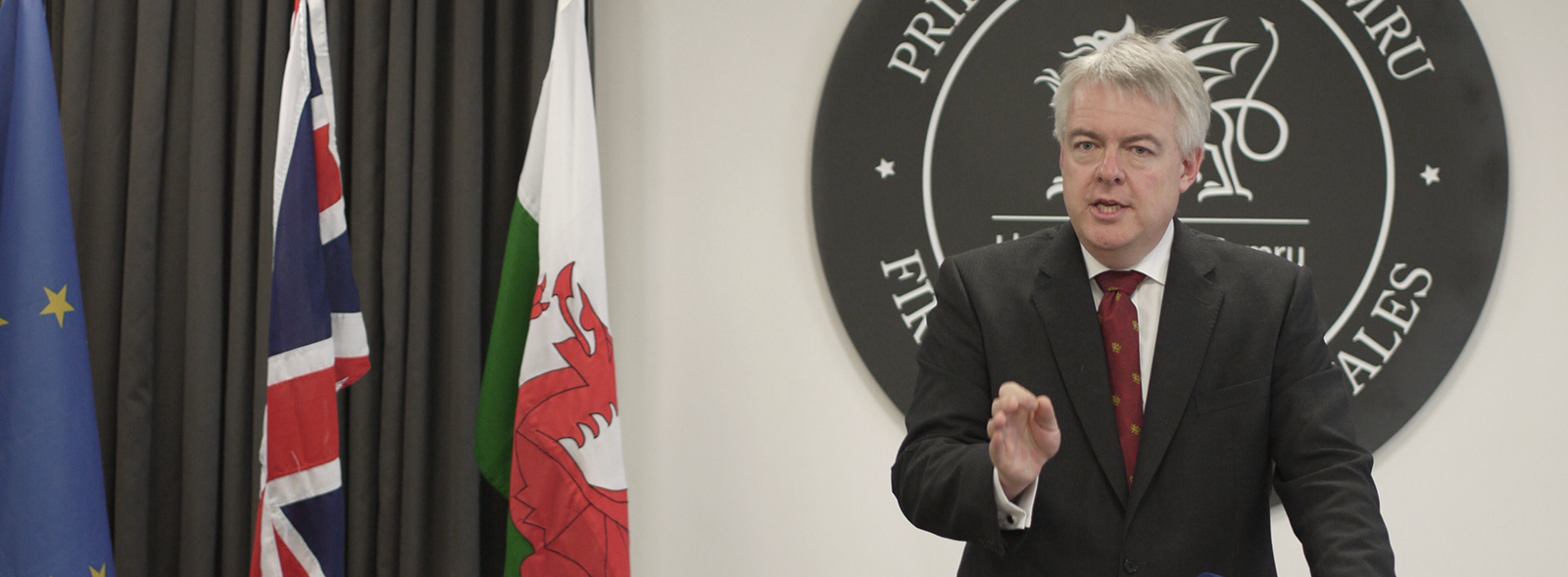The Assembly Committee responsible for scrutiny of the First Minister, Carwyn Jones, will examine the approach to reducing poverty in Wales and other issues in the West Wales region.
The First Minister Carwyn Jones will be appearing before the Committee for the Scrutiny of the First Minister on Friday, 17 February at 11.00 in the Halliwell Centre, Carmarthen.
What does the committee do?
The Assembly has several committees made up of Assembly Members from different political parties to look at different subjects in detail, i.e. health, education and culture. One of their functions is to investigate whether the Welsh Government is doing a good job. They do this by asking for views from the public and by getting input from experts, charities and other organisations. They also regularly question Welsh Government Cabinet Secretaries and Ministers. The Committee for the Scrutiny of the First of the Minister meets once a term and (as the name suggests) looks specifically at what the First Minister is doing. The chair of the Committee is the Deputy Presiding Officer Ann Jones AM. All of the Assembly Members in this committee are also currently chairs of other committees. Committee for the Scrutiny of the First Minister - Membership| Ann Jones AM (Chair) Welsh Labour | Jayne Bryant AM Welsh Labour |
| Huw Irranca-Davies AM Welsh Labour | Russell George AM Welsh Conservatives |
| John Griffiths AM Welsh Labour | Mike Hedges AM Welsh Labour |
| Bethan Jenkins AM Plaid Cymru | Dai Lloyd AM Plaid Cymru |
| Lynne Neagle AM Welsh Labour | Nick Ramsay AM Welsh Conservatives |
| Mark Reckless AM UKIP Wales | David Rees AM Welsh Labour |
| Simon Thomas AM Plaid Cymru |
 The First Minister's responsibilities include:
The First Minister's responsibilities include:
- appointing the Cabinet who comprise the Welsh Government;
- chairing Cabinet meetings;
- leading policy development and delivery;
- managing relationships with the rest of the UK and internationally;
- representing the people of Wales on official business, and
- staffing of the Welsh Government.
What will the Committee be discussing this time?
For this meeting the Committee will be focusing on the Welsh Government’s vision and approach to reducing poverty in Wales. Read more about the issue. The Committee would also like to discuss other major issues in the West Wales region. If you have an issue you’d like to raise, you can suggest a topic in advance.How can I watch?

You are welcome to come and watch the Committee proceedings in person. Let us know via our booking line. If you are local to Carmarthen or live in the West Wales area you can also suggest topics for discussion in advance.
If you can’t make it in person, the meeting will be available to watch very soon afterwards on Senedd.TV.
Poverty in Wales – an overview
Wales has one of the highest poverty rates in the UK. A report by the Joseph Rowntree Foundation found that poverty costs Wales £3.6 billion every year, with nearly a quarter of the Welsh population living in poverty. The challenge for the Welsh Government is how to reduce poverty when most taxes, employment law and welfare benefits are decided in Westminster.
The UK Government’s welfare reform programme Decisions about welfare spending in Wales are controlled by the UK Government. Wales is more reliant on welfare than other countries in the UK, so changes made to in-work and out-of-work benefits have a greater impact. Find out more about the UK Government’s welfare reform programme.
Devolution of some tax powers and welfare to Wales
Decisions about welfare spending in Wales are controlled by the UK Government. Wales is more reliant on welfare than other countries in the UK, so changes made to in-work and out-of-work benefits have a greater impact. Find out more about the UK Government’s welfare reform programme.
Devolution of some tax powers and welfare to Wales
 In 2018, the Welsh Government will use new tax raising powers granted by Westminster to introduce the Land Transaction Tax (replacing Stamp Duty) and a tax on landfill sites. The UK Treasury has also stated that Income Tax Rates could be varied by the Welsh Government in Wales from April 2019. In recent years, some welfare benefits (such as the discretionary elements of the Social Fund) have been devolved to Wales.
Brexit
In 2018, the Welsh Government will use new tax raising powers granted by Westminster to introduce the Land Transaction Tax (replacing Stamp Duty) and a tax on landfill sites. The UK Treasury has also stated that Income Tax Rates could be varied by the Welsh Government in Wales from April 2019. In recent years, some welfare benefits (such as the discretionary elements of the Social Fund) have been devolved to Wales.
Brexit
 Wales has had £4 billion in structural funding from the EU since 2000. The biggest recipients have been areas in South Wales and West Wales. Find out more about EU Structural Funding.
The effectiveness and value for money of long-term Welsh Government programmes
Wales has had £4 billion in structural funding from the EU since 2000. The biggest recipients have been areas in South Wales and West Wales. Find out more about EU Structural Funding.
The effectiveness and value for money of long-term Welsh Government programmes
 The Welsh Government is currently considering whether to end its flagship poverty reduction programme, Communities First, which was launched in 2001. The programme focuses on 52 individual areas in Wales and Communities Secretary Carl Sargeant said he was not convinced that it was the “most effective way to deliver for Wales”.
Better research on poverty, and how governments can prevent or mitigate it
The Welsh Government is currently considering whether to end its flagship poverty reduction programme, Communities First, which was launched in 2001. The programme focuses on 52 individual areas in Wales and Communities Secretary Carl Sargeant said he was not convinced that it was the “most effective way to deliver for Wales”.
Better research on poverty, and how governments can prevent or mitigate it
 Our understanding of poverty is changing. Good evidence, which recognises the individual experiences of poverty, is needed to design successful interventions and well-targeted programmes.
The ‘Well-being of Future Generation (Wales) Act 2015’
Our understanding of poverty is changing. Good evidence, which recognises the individual experiences of poverty, is needed to design successful interventions and well-targeted programmes.
The ‘Well-being of Future Generation (Wales) Act 2015’
 A new act of law introduced by the Welsh Government comes into force in April 2016. The Act aims to improve the social economic and cultural well-being of Wales.
A new act of law introduced by the Welsh Government comes into force in April 2016. The Act aims to improve the social economic and cultural well-being of Wales.
A spotlight on West Wales

We want to hear from you! What issues do you care about most where you live in West Wales? You can tweet us suggestions @AssemblyWales, leave a comment on our Facebook Page or email the committee directly - ScrutinyFM@assembly.wales.


